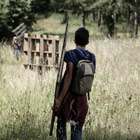
Amid disenchantment with mainstream politics, tensions between Socialists and Greens, and a string of disappointments from outgoing president François Hollande, activists known as zadistes have taken the defense of the environment into their own hands—and met formidable police repression.
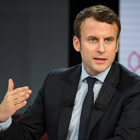
In this year’s unpredictable campaign, Emmanuel Macron’s business-friendly liberalism could be enough to spare France from the National Front. But in the long run, it’s no safe bet against the populist far right.
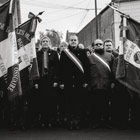
Since March 2014, the Front National (FN) has governed eleven French municipalities. The photographs here, from a two-year reporting project on three of these FN cities, offer a glimpse of what a France run by the FN might look like.
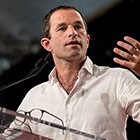
With this year’s elections, French politics has become less predictable than at any time since the founding of the Fifth Republic. It remains to be seen whether this volatility will reward the left—or the populist far right.

A new generation of minority and Muslim women are taking the lead in the fight against racial profiling, police brutality, mass incarceration, and a general crackdown on civil liberties in France.
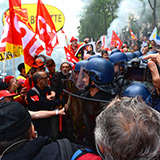
This summer, France’s Socialist government quashed the country’s largest wave of strikes of protests in a generation to impose a drastic overhaul of French labor law, revealing deeper fault lines in the process.
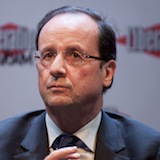
François Hollande has failed to provide voters with a credible alternative on issues of national security—a failure which has splintered the left and created a dangerous opening for the far-right.
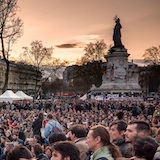
Streets and workplaces in France have been roiling with protests against a reform that would threaten the country’s 35-hour work week. Jacobin editor Jonah Birch joins us to talk about what it means for labor.

A Ukrainian academic from Donetsk told me last year that the region of eastern Ukraine where Malaysia Airlines flight MH17 was shot down is sometimes called the “house of burning stones.” The coal-rich region is home to shallow methane repositories …
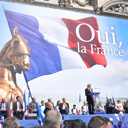
It is crucial to avoid treating the Charlie Hebdo attacks as shots in a war waged on France.
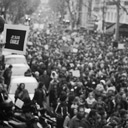
On January 7, the literary event everyone was expecting did not occur. Indeed, the long-awaited publication of Michel Houellebecq’s latest novel, Soumission—which envisions, in 2022, the second round of a French presidential election opposing Marine Le Pen, leader of the …
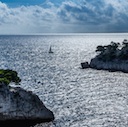
As “urban renewal” threatens to further marginalize the city’s poor, Marseille activists are demonstrating that genuine cultural, environmental, and social renewal can go hand in hand.
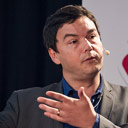
Why don’t popular economic ideas become policy?
Some people have asked whether the French municipal elections of 1965 would produce another Popular Front—even if this phrase could hardly mean today what it did in 1984. More precisely, the question has been raised whether the French Socialist party, …



















